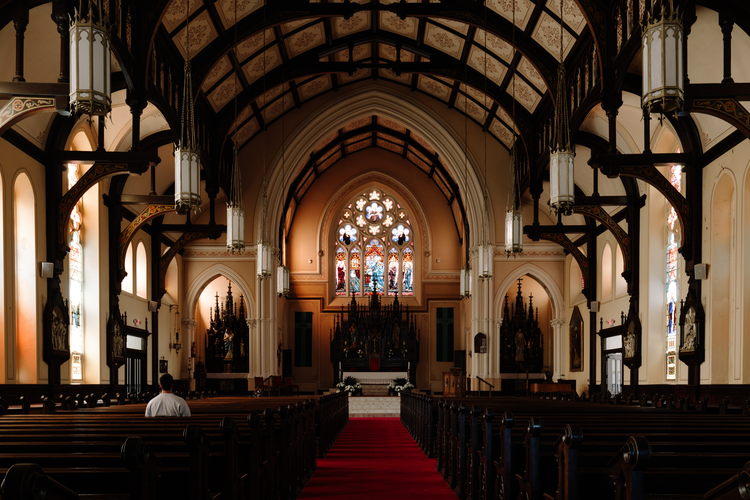How Do We Restore Trust in Our Church after the Sex Abuse Crisis?
America Magazine
The church in the United States faces a crisis of both trust and hope. As the bishops gather for their first national meeting since this summer’s revelations of sexual abuse in the church, it is clear that while they must make reforms, they cannot succeed alone. Nonetheless, there is hope to be found on this slow and difficult path. One reason for hope is that the zero-tolerance policies put in place by the Dallas Charter following the 2002 scandals have, in fact, worked; today, new allegations of misconduct are dealt with swiftly and through the proper legal channels. Yet the church is still haunted by the history of decades of failures. In the wake of revelations of Archbishop Theodore McCarrick’s history of abuse and harassment and the Pennsylvania grand jury report detailing predation by more than 300 priests over 50 years, Catholics are left asking: Why should I stay? Who can I believe? How can I raise a child in this church? Cardinal Daniel DiNardo, president of the U.S. Conference of Catholic Bishops, has acknowledged that he has “no illusions about the degree to which trust in the bishops has been damaged” and that it “will take work to rebuild that trust.” The bishops can use their annual fall gathering from Nov. 12 to Nov. 14, which will be focused on these questions, to begin that long-term work by affirming three basic principles to guide those efforts and establish a baseline for credible reform. First, the bishops should commit themselves to a national standard for transparency about sex abuse records. Since the Pennsylvania report, at least a dozen state attorneys general and the U.S. Justice Department have launched investigations into abuse claims against the church. Another hopeful sign is that many dioceses in these states have said they will fully cooperate with civil authorities. Others, including all 15 dioceses in Texas, have said they will proactively release the names of members of the clergy who have been credibly accused of sexually abusing a child. The U.S.C.C.B. and the heads of religious orders can both respect survivors of abuse and spare the faithful the protracted agony of state-by-state, year-by-year revelations of tragic failures by making a comprehensive commitment to account for this history—and by involving outside legal experts in the process. Second, the bishops should pledge to include laypeople, particularly parents and women, in every meeting where decisions are made about the handling of sex abuse allegations or holding those who failed to protect children accountable. As John Carr, who worked at the U.S. bishops’ conference for decades, wrote in these pages, it is too easy for priests and bishops to look at allegations of abuse “through the eyes of a brother priest.... [But] through the eyes of a father, this was the worst thing that could happen short of the death of a child” (Am., 10/15). Where canonical structures stand in the way of involving laypeople in these roles, the bishops should petition for them to be changed for the good of the church. Third, and most important, every step taken in response to the ongoing fallout of this crisis should be tested by the question: Does this provide justice and healing to survivors of sexual abuse? To our great shame, the church in the past has treated victims’ reports of their abuse as public relations disasters to be quieted or financial liabilities to be managed. We can no longer afford to be driven by fear—of public scandal and shaming, of lawsuits and bankruptcy. What is owed to those who have suffered harm at the hands of the church is indeed incalculable, and the cost may be deeply felt by bishops, priests and laypeople who bear no responsibility for these crimes. But our hope lies in responding more as a community seeking justice and reconciliation than as an institution managing a crisis. We must pray, therefore, for the grace to proceed boldly wherever the painful truth of our failures leads us, trusting in the One who is faithful to the end.
|
.
Any original material on these pages is copyright © BishopAccountability.org 2004. Reproduce freely with attribution.
